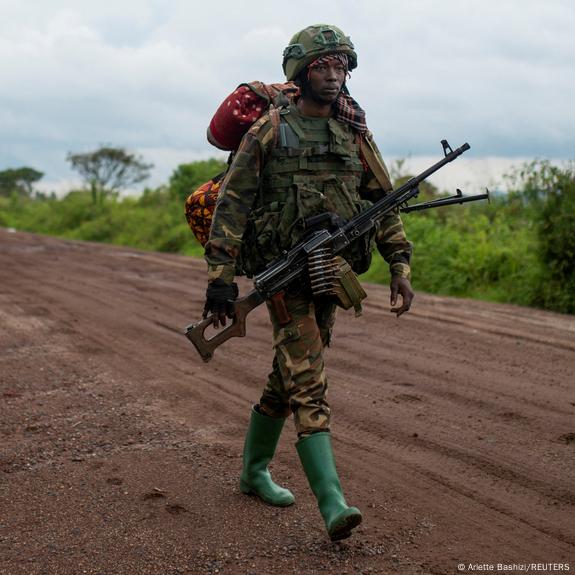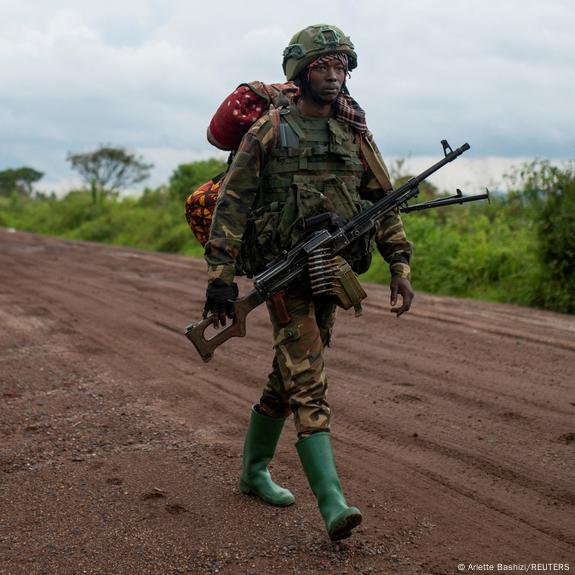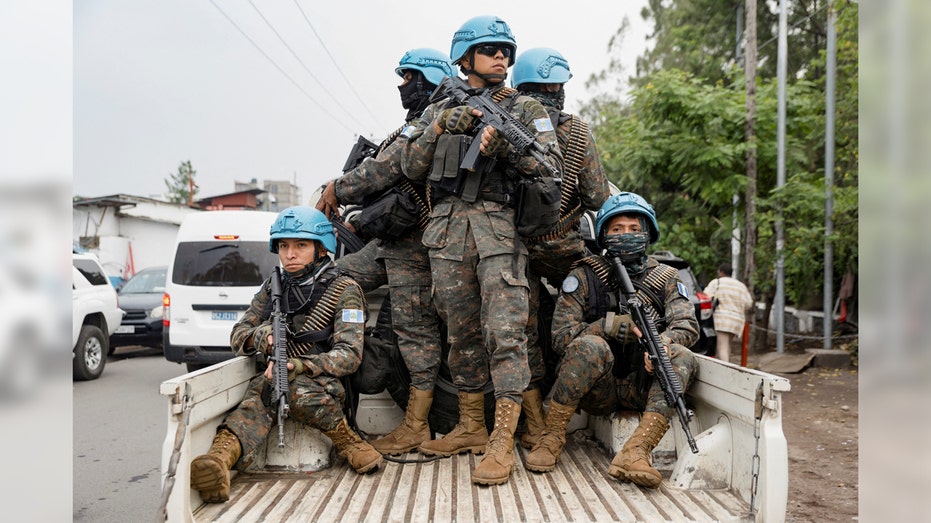
Escalating Violence in Goma: A Humanitarian Crisis Unfolds
International Airport Evacuated Amid Fierce Clashes
The Goma International Airport, a crucial gateway in eastern Congo, faced an emergency evacuation this Sunday as violent skirmishes erupted between Congolese government forces and the Rwanda-backed M23 rebel group. The unrest has claimed the lives of at least 13 peacekeepers and foreign soldiers, forcing thousands of civilians to flee their homes.
Territorial Gains by M23 Rebels
In a troubling turn of events, the M23 rebel group has made significant territorial gains near the Rwandan border in recent weeks, tightening its grip on Goma, a provincial capital with a population nearing 2 million. The city has long been a pivotal center for regional security and humanitarian operations, now under increased threat as violence escalates.
Airport and Safety Measures Implemented
Following the intensifying clashes, military forces cleared Goma’s international airport, halting all commercial flights. An airport official, speaking under anonymity, confirmed the flight suspensions due to security concerns. Additionally, an internal United Nations email obtained by The Associated Press advised UN staff to steer clear of the airport and seek shelter.
Accusations of Rwandan Support for M23
The Congolese government, in conjunction with U.S. officials and U.N. experts, has accused Rwanda of providing support to the M23 rebels, a faction primarily composed of ethnic Tutsis that defected from the Congolese army over a decade ago. The M23 is one of around 100 armed groups vying for power in this resource-rich yet volatile region, which is currently engulfed in one of the world’s most severe humanitarian crises.
Despite Rwanda’s denials of supporting the rebels, it acknowledged deploying troops and missile systems in eastern Congo last year, citing border security. Estimates from the U.N. indicate that approximately 4,000 Rwandan forces may be operating within Congolese territory.
Deteriorating Diplomatic Relations
The ongoing conflict has severely strained diplomatic relations between the two nations. In a significant move on Saturday, Congo’s Foreign Ministry announced the severance of diplomatic ties with Rwanda, recalling all staff from Kigali immediately. Rwanda’s Foreign Minister, Olivier Nduhungirehe, dismissed the announcement as premature, noting it surfaced on social media before official communication could be established. He revealed that Rwanda had evacuated its diplomat from Kinshasa a day earlier, anticipating potential safety risks from increasing threats aligned with Congolese officials.
Cost of Conflict: Peacekeepers Under Fire
As the violence continued to surge, the toll on peacekeepers and soldiers became increasingly evident. Over the past two days, two U.N. peacekeepers from South Africa and one from Uruguay were reported dead, with 11 others injured and receiving medical care. Moreover, South Africa’s Ministry of Defense confirmed the deaths of seven South African troops engaged in the Southern African Development Community Mission in Congo (SAMIDRC) during recent clashes.
In response to the situation, the U.N. Security Council convened an emergency meeting, during which Secretary-General António Guterres condemned the M23 offensive, affirming that it was “supported by the Rwanda Defense Forces.” He emphasized the urgent need for a ceasefire and the withdrawal of M23 forces.
Displaced Civilians Seek Refuge
Amid the chaos, heavy gunfire echoed through Goma on Sunday morning, driving civilians from the Kanyaruchinya camp, just near the Rwandan border, toward the city’s south. One fleeing civilian, Safi Shangwe, recounted the horrific scenes: “We are running because we saw soldiers on the border with Rwanda throwing bombs and shooting. We are tired and afraid, and our children are at risk of starving.”
However, even Goma was seen as a precarious refuge. Another displaced resident, Adèle Shimiye, noted her apprehension: “We are heading to Goma, but I’ve heard there are bombs there, too. Now, we don’t know where to go.”
Attempts to Cross Borders for Safety
In a desperate bid for safety, numerous civilians attempted to cross into Rwanda via the “Great Barrier” border crossing, where migration officers diligently checked travel documents. Muahadi Amani, a Goma resident, expressed concern for his safety: “I am going to the other side to see if we can find some safety, as security in Goma is not guaranteed.”
Threatening Closer Proximity of Conflict
The stakes have risen, particularly with the M23’s recent capture of the nearby town of Sake, located merely 16 miles away from Goma. On Saturday, Congolese forces claimed to have repelled an M23 offensive, aided by allied groups like U.N. peacekeepers and SAMIDRC troops, yet fears remain surrounding the city’s security.
Challenges of Maintaining Peace
Sustaining peace in this tumultuous region has been a daunting task for the Congolese government, alongside U.N. peacekeepers and SAMIDRC forces, since 2021. With approximately 14,000 personnel currently deployed in the U.N. peacekeeping mission—operating in Congo for over two decades—the ongoing instability highlights the persistent challenges in achieving lasting peace and security within the region.
Conclusion: A Region in Turmoil
The situation in Goma remains critical, with fierce fighting threatening not only the lives of soldiers and peacekeepers but also the civilian population caught in an ever-worsening humanitarian crisis. As regional actors and international bodies grapple with the conflict’s implications, the urgency for dialogue and resolution has never been more apparent.


















